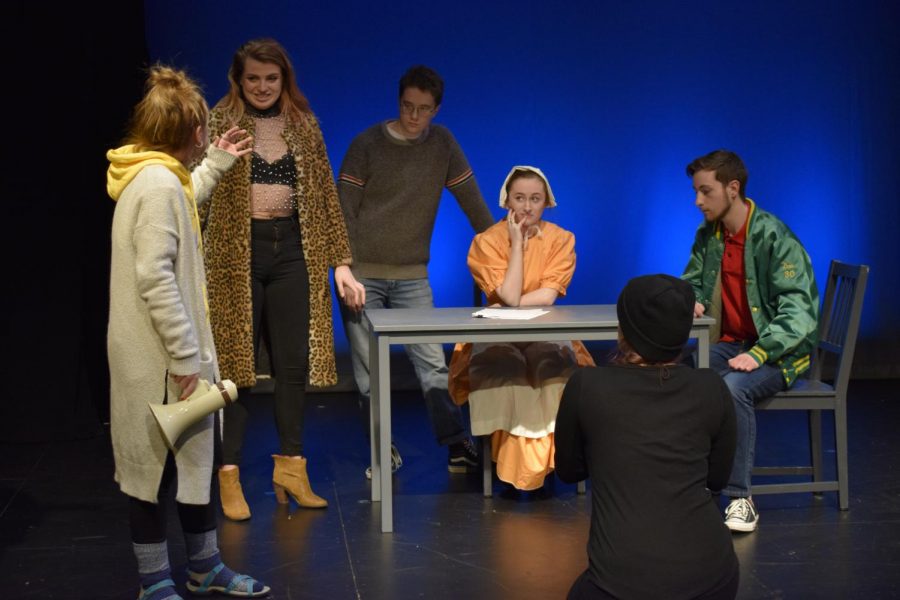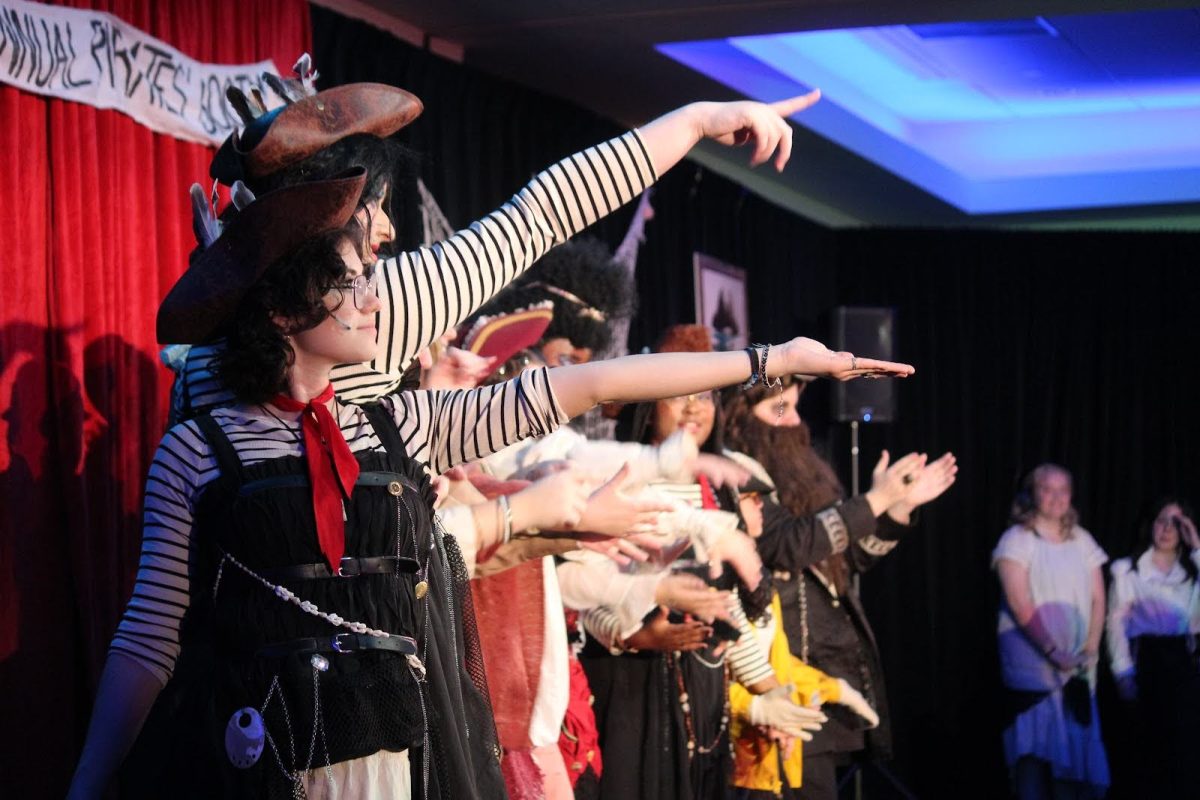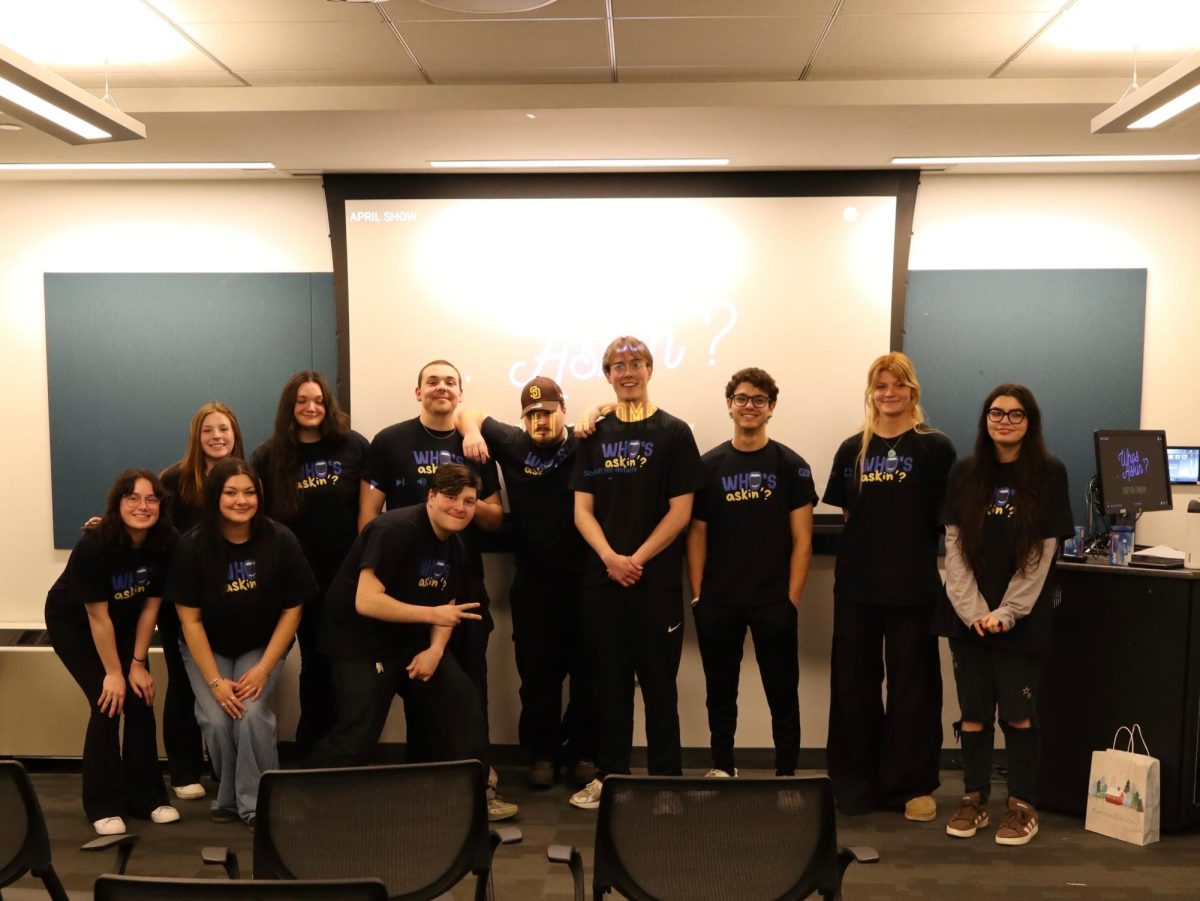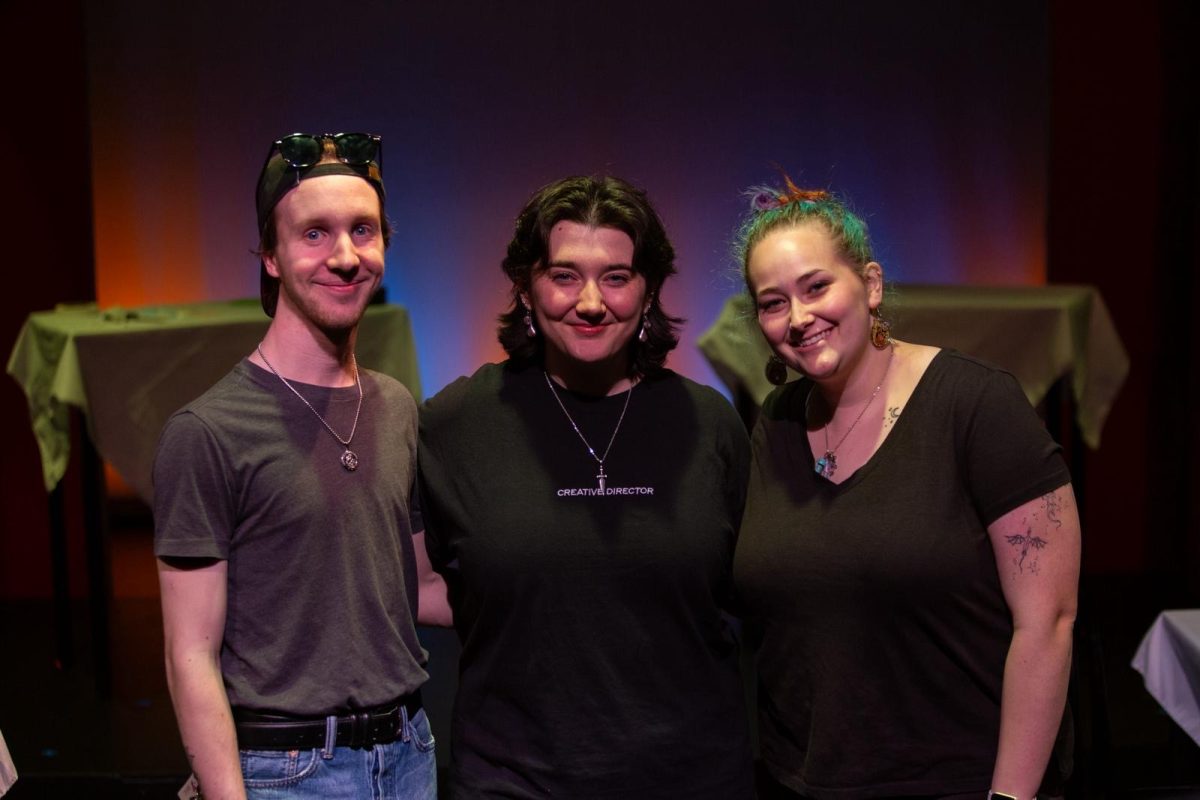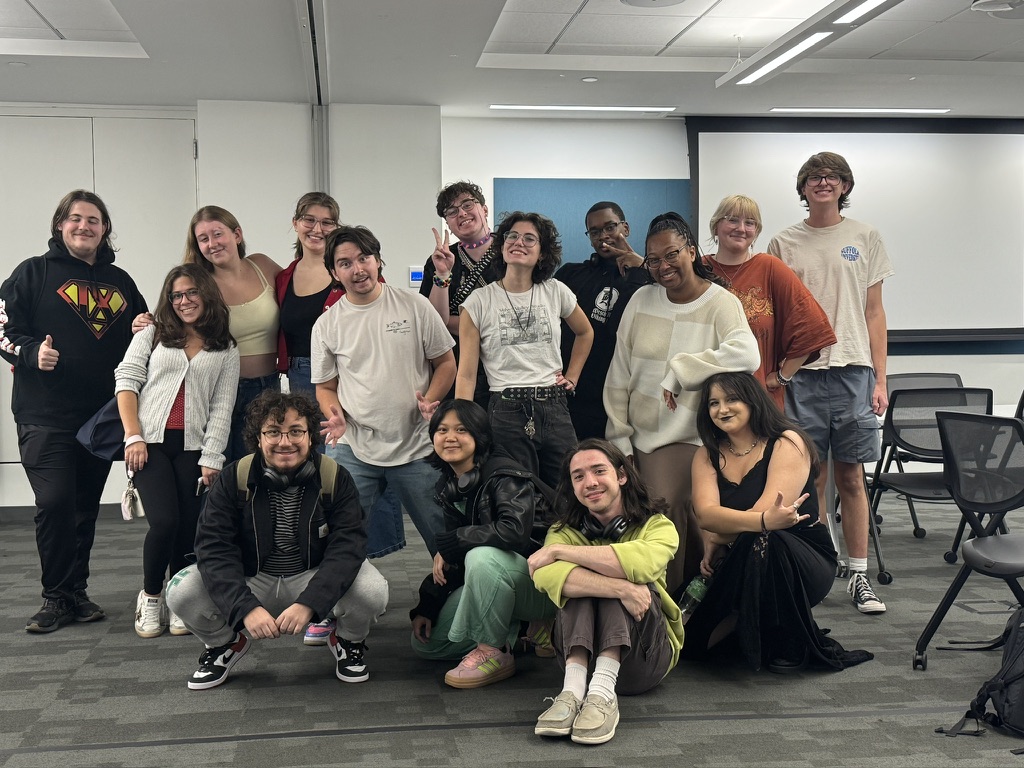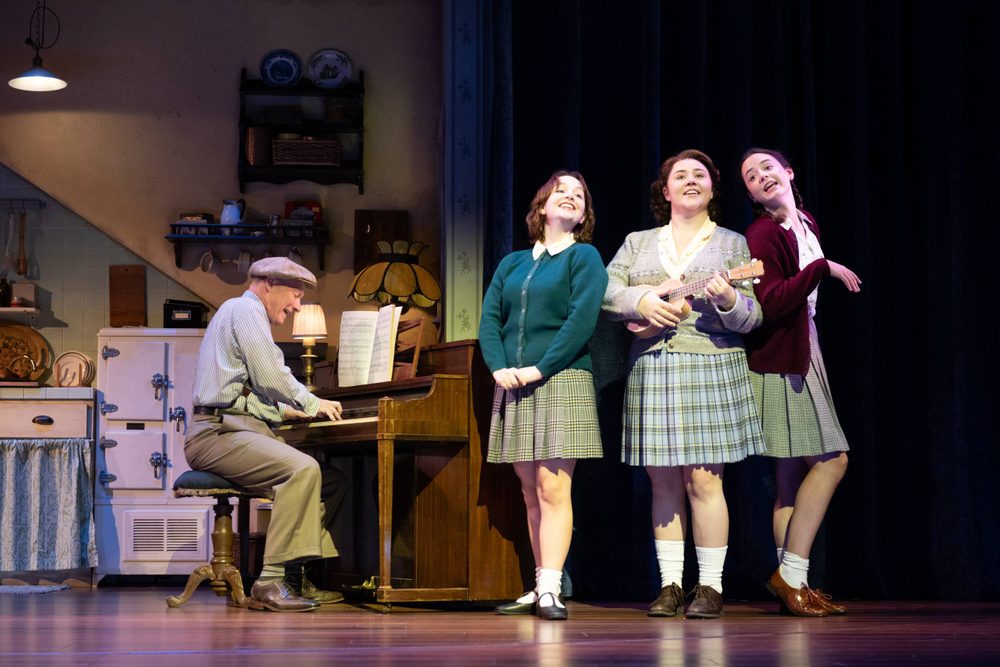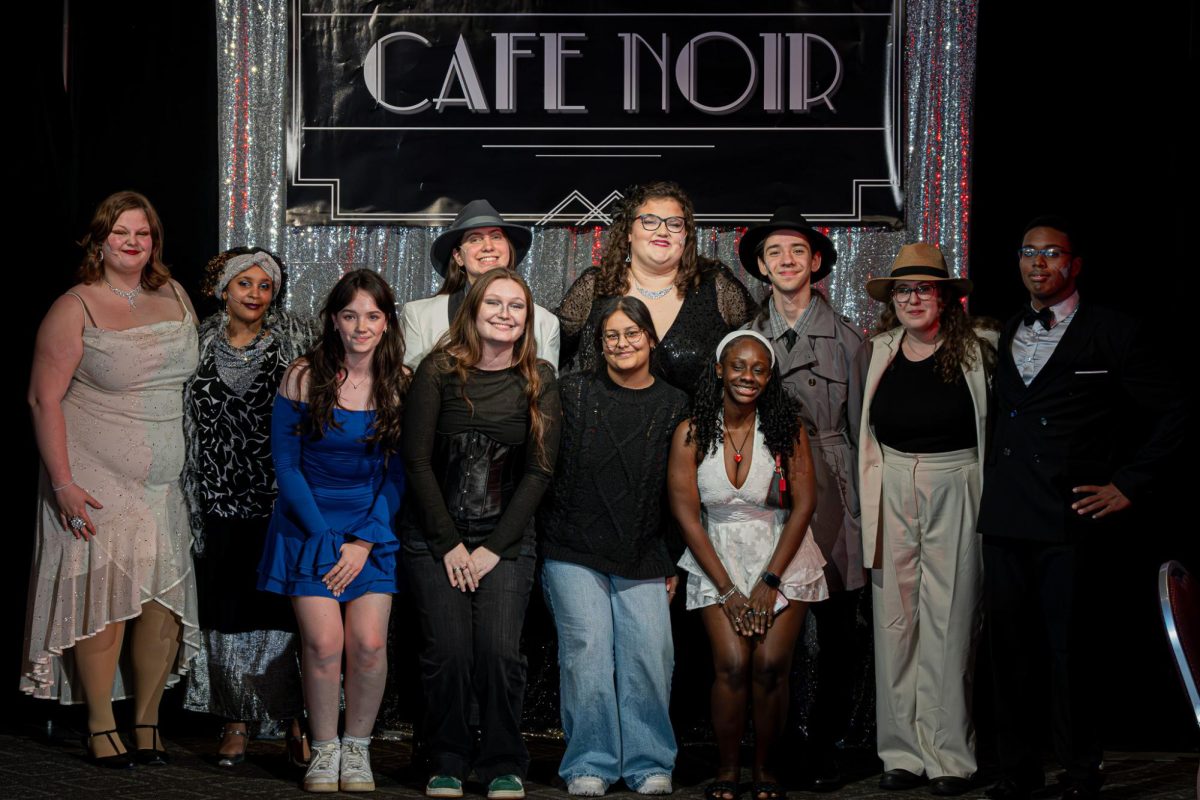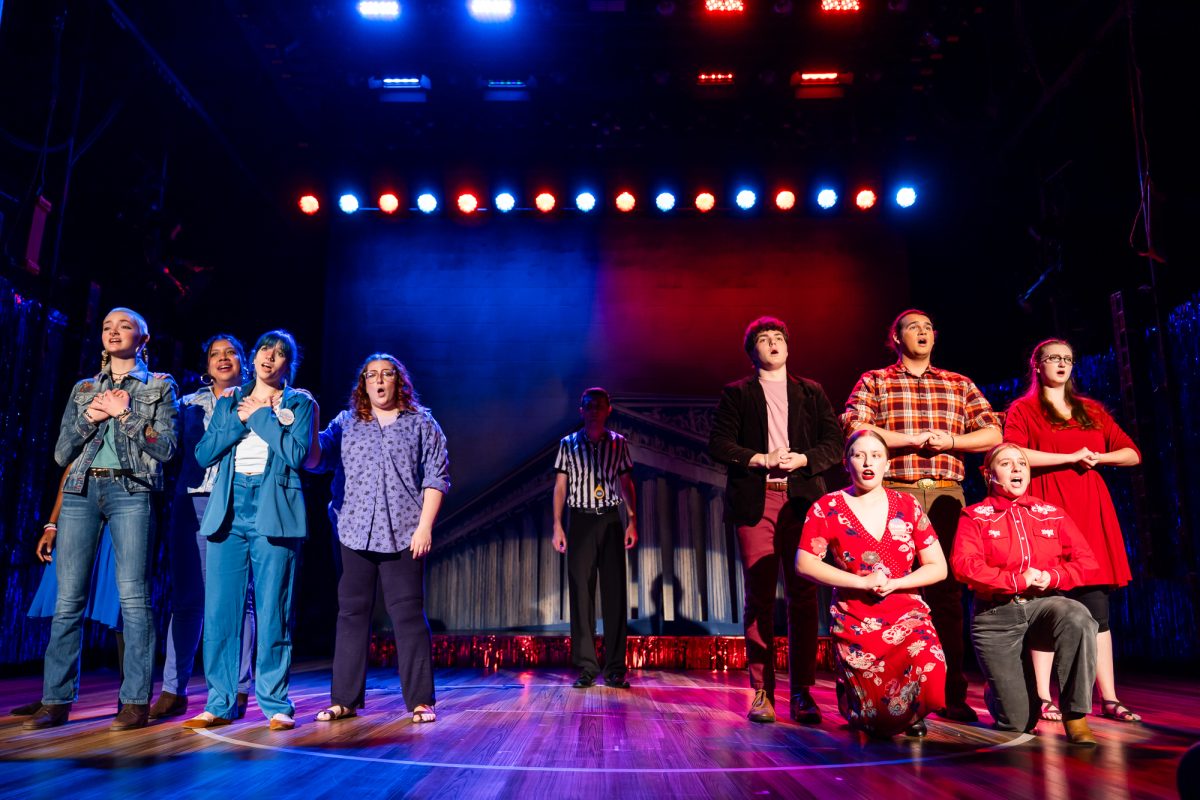The Suffolk University theatre department presented its annual Spring Showcase last weekend, which brought three unique student written and directed plays to life at the Sullivan Studio Theatre. The performance gave young playwrights and directors the chance to exhibit their work in front of a larger audience.
The plays were each around 20 to 25 minutes long, but that is one of the only things all of the shows had in common. The plays spanned from comedy to drama as each show tackled completely different storylines and induced different emotions on the audience.
The showcase began by filling the room with laughter as co-writers and co-directors Ma’chel Martin Jr. and Justin Peavey debuted their comedy “Studio 602.” Their play was set inside a busy TV studio. During the middle of filming the pilot episode for a new cheesy sitcom, it is announced that the show has been cancelled. The cast decides to rally together to find a way to raise money to save the series and their jobs.
“Every single character has something funny that they bring,” junior theater major Justin Peavey said in an interview with The Suffolk Journal. “There’s a lot of funny moments hidden in the show that we don’t focus on, but they’re there.”
Martin and Peavey collaborated with Suffolk’s media and film department to tape prerecorded scenes of the show which were projected on screen, creating the illusion that the audience was watching a legitimate TV series. Videos of the sitcom were interspersed throughout the play to highlight the contrast between watching TV versus a live stage production.
“We really wanted to make it feel like they were on a TV set about to watch the filming of a sitcom and be like the live studio audience, but at the same time, we didn’t want to imitate it completely because we also wanted to show that this is live theatre and not everything is going to be filmed,” junior theater major Ma’chel Martin Jr. said in an interview with The Journal.
Immediately following “Studio 602,” the next play premiered was “Macbeth,” which was adapted and directed by senior theatre major Blair Bogle. Her adaptation of Shakespeare’s classic piece featured a female Macbeth and was set in modern day American politics. The idea for this twist on the 17th century work came to her during a class discussion about the play.
“All I could think about the entire time I was sitting there was how livid everyone would be if the roles were switched and it was like a man pressuring his wife to do this,” Bogle said. “And I couldn’t really get the idea out of my head so I just started writing it.”
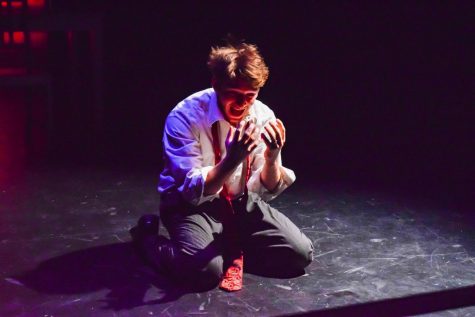
Bogle said that is was challenging to figure out which parts of the original text she could remove while still keeping the story’s integrity. Her suspenseful production has been fully translated and is less than 30 minutes long, but it makes the audience think deeply about the country’s current political climate and notions about gender roles.
“I think it’s really interesting to be switching genders in roles because there’s no rule that says you can’t do that, and there’s no rule saying women can’t play mens parts and men can’t play women’s parts,” said Bogle.
The last play presented at Spring Showcase was “This is Not a Comedy,” written and directed by senior theatre major Kane Harper. The play strived to show how people such as performers, artists and comedians often mask their sadness with humor. Some people who are known for making others laugh may secretly feel dejected or lonely on the inside. “This is Not a Comedy” bridged comedy and existential thought into a single performance to demonstrate how someone who is known to be funny may not always be happy.
“A good example is Robin Williams,” said Harper. “The people who are very very outgoing and friendly are very very sad on the inside, but their one driving thing is that they make other people happy.”
Although Harper had a specific meaning behind his play when he wrote it, he understands that there can be countless interpretations of his work and he simply wants the audience to remember it, no matter what the reason may be.
Harper explained how challenging it was to direct the self-written play. He kept wanting to edit the script, but realized he needed to focus his energy solely on being the director.
“I needed to treat myself as two different people,” said Harper. “I needed to say the writer was done in December and whatever he did in January, I’m directing.”
The directors explained that their cast members worked tirelessly in rehearsals, but they have enjoyed seeing their shows evolve as the actors began to interpret their work and develop the characters in their own style. Martin and Peavey said that each run was different because the actors had the freedom to experiment and fine-tune their roles.
“As actors, you discover more and more about the text the more you visit it, and [that’s] very very clear for us with this process just watching how everything changes each time they do it,” said Peavey.
This was the first time any of these students directed a production of this scale, and through the process they learned many new skills and traits about themselves, including how to communicate, express ideas, voice their opinions and collaborate with others.


